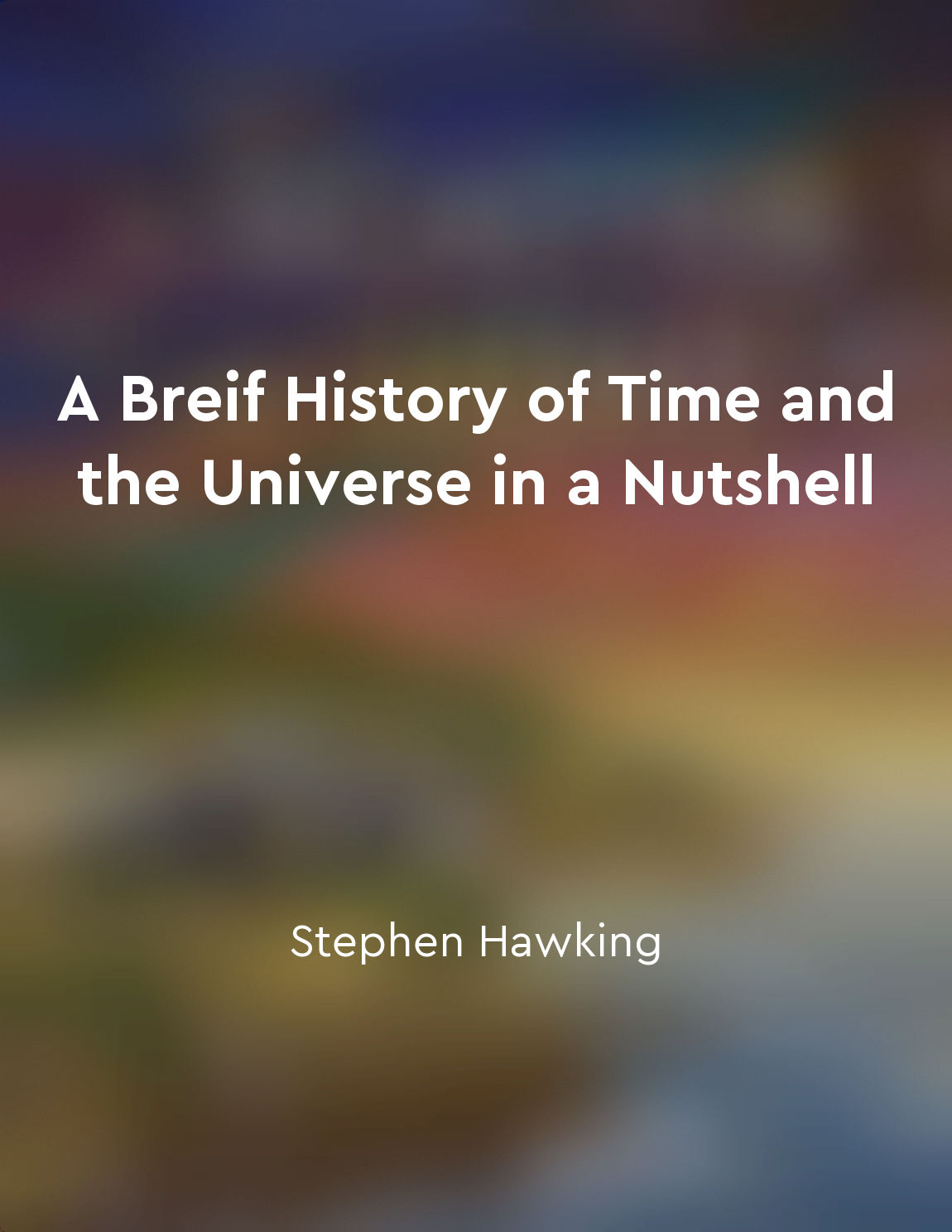Gravity's effect on time from "summary" of A Breif History of Time and the Universe in a Nutshell by Stephen Hawking
Gravity, as described by the theory of general relativity, is not just a force that pulls objects towards each other. It also has the ability to affect time itself. This concept may seem strange at first, but it is a fundamental aspect of the relationship between gravity and the fabric of spacetime. According to general relativity, massive objects like stars and planets can warp the fabric of spacetime around them. This warping effect is what we perceive as gravity. When spacetime is warped by a massive object, it also affects the flow of time in that region. Essentially, gravity can slow down time or speed it up depending on the strength of the gravitational field. For example, near a black hole where gravity is extremely strong, time would appear to slow down for an outside observer compared to someone far away from the black hole. This phenomenon is known as gravitational time dilation. In this case, the intense gravity of the black hole warps spacetime to such an extent that time itself is distorted. On the other hand, in regions of weak gravity, such as outer space far from any massive objects, time would flow at a more regular pace. This means that gravity not only influences the motion of objects in space but also has a direct impact on the passage of time. Therefore, the concept of gravity's effect on time is a crucial aspect of understanding the interconnected nature of the universe and how different forces shape our perception of reality.Similar Posts
Diversity enriches our collective experience
In my view, the world is a vast tapestry woven together by countless threads of different colors and textures. Each thread repr...
Satellites orbit Earth
Satellites, man-made objects launched into space, play a crucial role in modern communication, weather forecasting, navigation,...

Black holes evaporate over time
In the vast expanse of the cosmos, black holes are mysterious entities that have captured the imagination of scientists and lay...
Einstein’s theory of relativity revolutionized our understanding of the universe
Einstein's theory of relativity is a masterpiece of human creativity that revolutionized our understanding of the universe. It ...
The possibility of time travel opens up new avenues for scientific exploration
The idea of time travel has fascinated scientists and science fiction enthusiasts alike for generations. In Einstein's theory o...
Time may not exist before Big Bang
According to the theory of general relativity, the universe has not existed forever. Rather, the universe, and time itself, had...
Time is a source of creativity and inspiration
Time is not only a dimension that shapes the universe; it is also a wellspring of creativity and inspiration. The flow of time ...
Time is a key driver of change
Time unfolds in a ceaseless rhythm, shaping the world around us with its relentless ticking. It is the invisible force that dri...
Interstellar travel is possible through the bending of spacetime
In the universe, the fabric of spacetime can be warped and distorted by the presence of massive objects, such as stars and plan...
Parallel universes could be created through time travel
In the realm of time travel, scientists have postulated a fascinating concept that opens up a world of possibilities - the crea...
